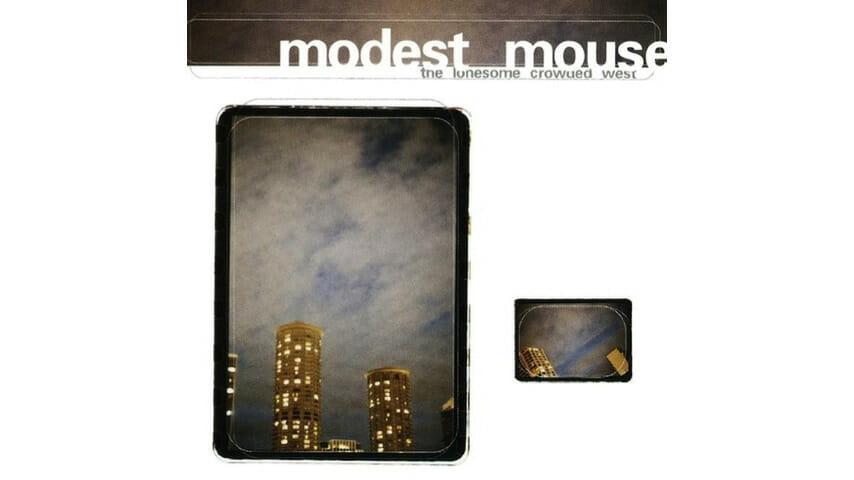Modest Mouse: The Lonesome Crowded West Reissue

“What’s the point of re-issuing a record?” someone asked me the other day. Most everyone just chalks it up to artists and labels wanting to sell more widgets. With the advent of streaming services, we essentially have everything we want at our fingertips. But after a long conversation about music with a younger English friend of mine the other day, the answer to the aforementioned question became clear:
The topic of Modest Mouse came up, and the young Englishman said, “I listened to The Moon & Antarctica a while back, but apart from that I’m not that filled in with Modest Mouse.” The idea that someone didn’t grow up with Modest Mouse as the soundtrack to their adolescence took a moment for me to process. Then I considered what the impact of a reissue’s distribution and press rounds could have on young ears. It’s another chance to discover a classic.
Conversely, feelings like the sheer joy I experienced running up the stairs with my mail order package containing a gorgeous double vinyl LP of The Lonesome Crowded West, make it so superfans from 17 years ago can get the warm and fuzzies from a physical copy of this re-issue too. Let’s put the fogeys like me aside for a second and consider what someone who’s just getting into The Lonesome Crowded West, in all of its contemporary Americana greatness is in for:
They’ll hear the frenetic opening notes of “Teeth Like God’s Shoeshine” to its melancholy breakdowns casting shade on mundane consumerism, then weave back into an explosion of energy that was leaving the grunge-rock movement behind. They’ll notice one of the earliest uses of turntablism in a rock song on “Heart Cooks Brain,” that only gets overshadowed by Isaac Brock’s beautiful juxtaposition of soul and body with “In this place that I call home/My brain’s the cliff and my heart’s the bitter buffalo” over a timeless guitar riff. The Lonesome Crowded West is an album that grips the listener with lasting guitars, hip-hop elements, ranging emotions, social discourse and introspective lyrics. All by the end of the second song.
That young listener arrives at the core focus of the record on the third track, “Convenient Parking,” which sees Isaac Brock lamenting the veritable concrete jungle that the world around him has become. It’s the start of an observational eloquence that sets Brock apart as a lyricist. He builds the imagery of driving through the country staring out the window and observing the human condition, passing from town to town and detailing the minutiae of the lives he passes, often his own.
-

-

-

-

-

-

-

-

-

-

-

-

-

-

-

-

-

-

-

-

-

-

-

-

-

-

-

-

-

-

-

-

-

-

-

-

-

-

-

-








































